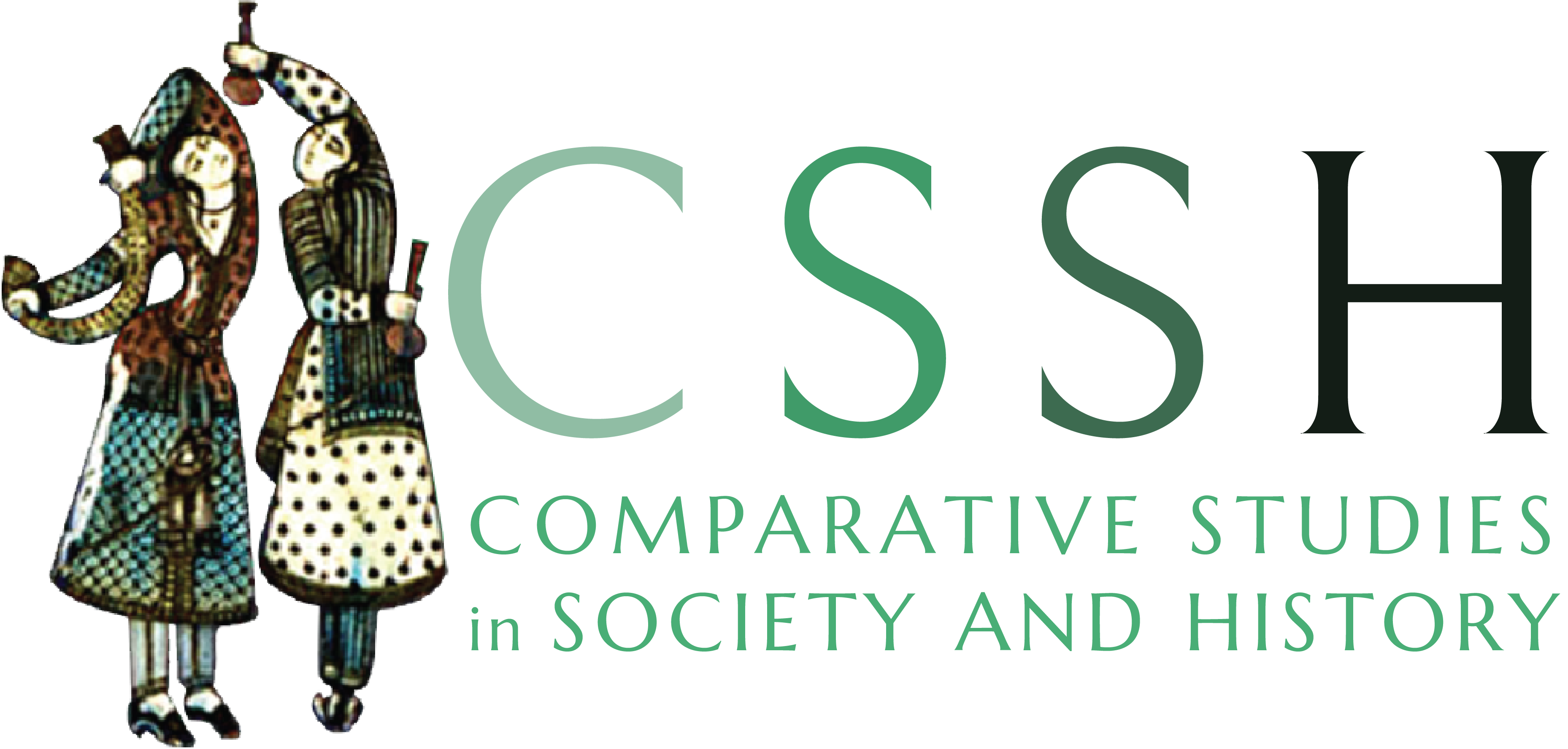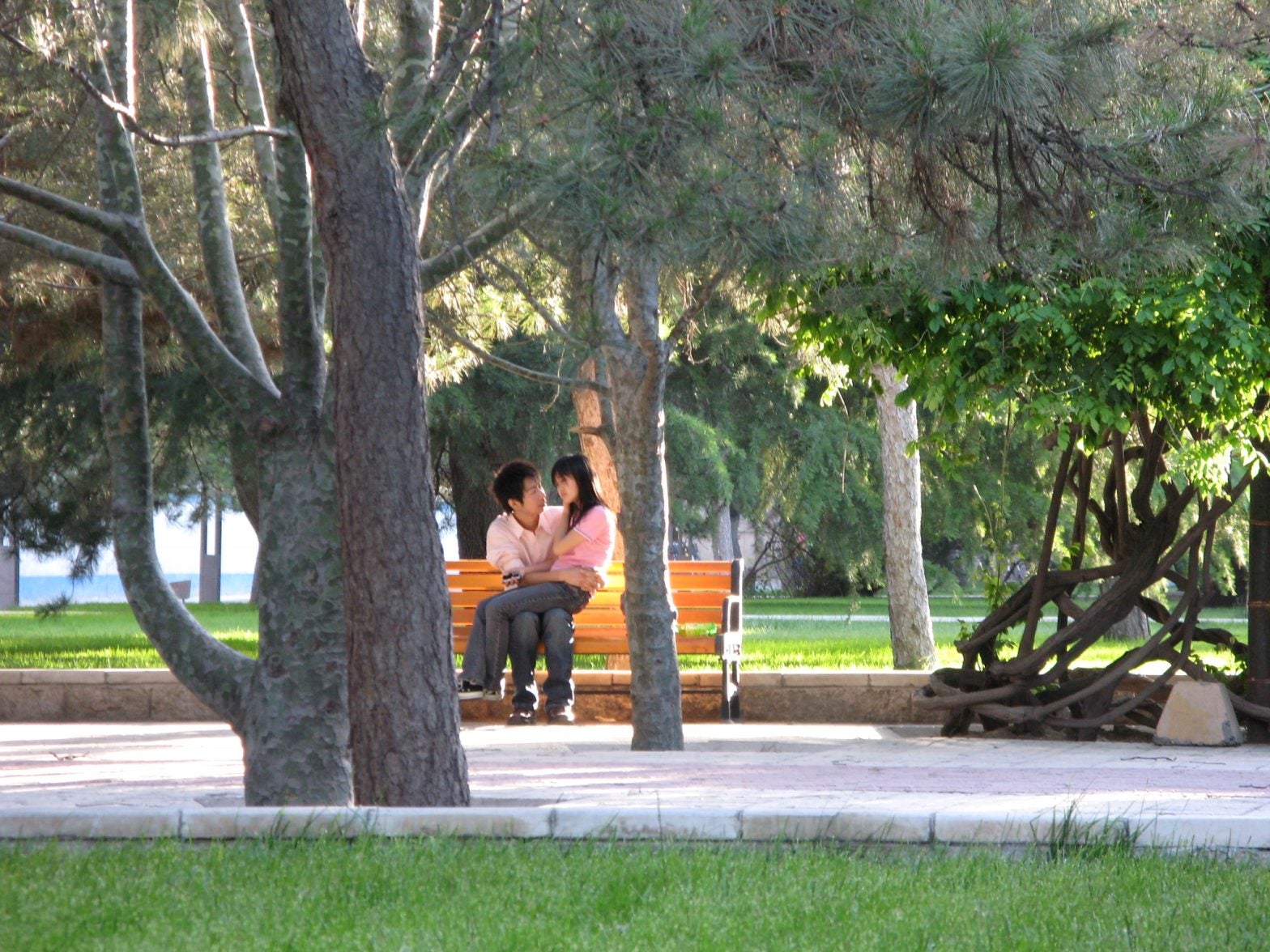What role do parents play in the marital choices of their children? In “A question of bank notes, cars, and houses!” Matchmaking and the Moral Economy of Love in Urban China” (CSSH 64-2, 2022), Jean-Baptiste Pettier argues that, among middle class Chinese, families are developing cooperative, cross-generational strategies for finding marriage partners. While “love” and “choice” are prominent themes, parents actively sort, vet, and even veto the potential spouses of their sons and daughters, who often rely on parents to help them select partners who meet family standards. Pettier provides a meticulous account of this evolving system, and he tells us that it was not the original focus of his research. At first, he wanted to study “questions of youth intimacy.” Sensing in this admission an untold tale, we invited Pettier to say more. In his response, he provides an invaluable supplement to his CSSH article, and he shows how a good ethnographer responds creatively to realities on the ground.

When I first arrived in Beijing to carry out my MA research (in 2006-2007), the global press and a few Chinese sociologists claimed that China was experiencing a “sexual revolution.” I was intrigued. After spending a lot of time with young workers and students, I came to conclude that, if indeed a revolution was occurring, it was certainly a departure from my understanding of the term, which entailed liberation from norms and constraints. Indeed, spaces for sexual interaction had significantly increased, but they all had—in my view—a very commercial flair. There were many dance clubs with cohorts of young women paid to entertain male clients. (In one instance, I saw the opposite, with young men lined up to entertain female clients). There were plenty of sex shops euphemistically disguised as “adult” and “health” shops. Though officially forbidden, pornography and sex workers were visible in many places. Making money off sex seemed to be the primary focus, in line with Zheng Tiantian’s (2006) work, which shows the intimate link between prostitution and the business sector in Northeastern China. At the same time, the gender roles on display seemed extremely constricted and stereotyped to me. Social control by families was also strong. Finally, several students from elite institutions—whom I had expected to be the most liberal—told me with a confidence I found credible, that they were waiting for marriage to engage in sex. Some had been in a relationship for years, but—to reassure their parents of how seriously they were taking their studies—they were waiting until graduation to introduce their partner to their parents and marry. Indeed, these attempts to wait for years often failed in the end, but the effort was real. All of this was far from my own idea of what a sexual revolution would look like. Moreover, the term “sexual revolution” was not in local use. Criticism of the Cultural Revolution was still virtually universal in China (this would change in later years), which made the notion of a “sexual revolution” sound like a negative thing to most people, even if some Chinese sociologists adopted this imported wording.
At the start of my PhD, I continued working on these issues. It seemed glaringly obvious, however, that, rare exceptions aside, most of the people I met with regularly in my research were simply too busy, and too constrained in their lifestyle, to experience the kind of liberation described in popular media. Instead, I saw hard-working young people under a lot of pressure, with little time or opportunity to socialize. When they went out, or at least when I was going out with them, their approach to one another seemed remarkably conservative. I do not mean to suggest that they did not have fun drinking together, singing and dancing; they definitely did, and they had as much fun as possible. In an often playful and burlesque manner, young men in particular could display very sexual attitudes. However, when it came to intimacy, they tended to become very cautious. If flirting occurred, individuals usually hid it from their peers, pretending to be only friends, arranging to meet again later at night, after the group had split up, at least until a relationship had stabilized. Moreover, most relationships did not start directly, but through introductions made by acquaintances or friends in common, who provided moral backing and ensured that the two parties were serious and “responsible.” To complicate matters further, most people I socialized with could not afford to live alone. Students shared collective dorms on campus; workers shared tiny apartments or dorms. Hence, the potential for sexual intimacy was limited. Some made arrangements with their peers for private access to their common bedroom for a few hours on a given day. Others used short travel opportunities to be isolated from the group. I noticed that young rural migrant workers could sometimes live a more adventurous life, since their parents could not control them, but this was unusual. In general, work conditions and constraints on socializing were the toughest for migrants.
Strictly assigned gender roles also meant that women had to protect their reputations, and “good men” were expected to prove their masculinity and respect for their partners by strictly controlling their desires and avoiding sexual matters. Several young men told me that, although they wanted to, they could not even raise the issue of sex. They considered sexual desire “natural” and could speak openly about it together or with me, but it was usually in the realm of the unsaid with their partner. Keep in mind, I am not discussing non-heteronormative people, a population that faces even stronger isolation and self-censorship. Among heterosexuals, young women told me of current or previous partners who used stratagems like pretending to be drunk in order to get physically closer to them after having actually imbibed very little. Some women told me about traumatic experiences, which they had never shared with anyone else before, even with their best friends. I was entrusted with such sensitive accounts, they said repeatedly, because I was external to their social world. They were eager for an outside perspective on experiences they were concealing from others, and they were curious about how their own stories compared with others I had heard. They often asked me about others’ accounts. Obviously, I could not tell them stories about people they knew, but at least I could try to put things in perspective.
Some of the women I interviewed were in love and actually expressed willingness to accept the stratagems of their partners as a pretext to engage in intimacy. However, in none of these cases were women taking the initiative. As Harriet Evans (1997: 109) observed long ago, women’s main roles were to uphold sexual morality and propriety. In addition, women and men were socialized and educated differently, and women were usually “protected” from sexual knowledge until their adult years. This was already changing when I began my research—young adult women were significantly less naive than those just five years older. A Chinese teacher in her mid-thirties in Beijing told me, in the early days of my fieldwork, that as a young adult she was afraid she would become pregnant simply by sitting beside a man she found attractive. I learned during subsequent interviews and everyday exchanges that social mores kept many young women in relative ignorance of sexual matters, while many men learned about them by watching porn and going to sex-workers. This ignorance, added to the difficulty of expressing desire between partners, translated into an unbalanced array of real-life experiences, many of which women could not anticipate or choose.
Marital ideals added pressure, too. Many women hoped their future husband would have a bit of sexual experience prior to marriage, but they assumed that ideal wives should be virgins. This was also the expectation of many men. Women were, indeed, the ones who bore the weight of having a “pure” reputation. I was told several times about how parents insulted the reputation of young women they wanted to reject as partners for their sons. Mostly, it was mothers who engaged in this practice. The vocabulary they used was moralizing and often very crude. Whether true or not, the insults consisted of accusing a young woman of having a reputation for licentiousness. Often, the words used were so offensive that subsequent marriage negotiations between the two families were impossible. Parents did not always reject their child’s partner of choice, but they were definitely empowered to do so, and many made use of this privilege.
Perhaps as a consequence of all this, most of the individuals I knew who were adopting more relaxed social attitudes and had greater interpersonal skills were already in their thirties; most of them were married. Young married adults could engage in intimate social relationships—both conjugal and extra-conjugal—more freely than they could before marriage. However, among my younger interlocutors, those in their twenties, such freedom was rare. After the age of 25, young men would tell me that their adventures were “behind them” and that marriage was now their single priority. Yet their prior dating or flirting experience was very limited. In China, young people are expected to marry before 30, and ideally around 25. The average age at first marriage is now approaching this upper limit, and marriage at 30 is more accepted. However, late marriage was and remains a source of great anxiety.
So, even though I observed few signs of the “sexual revolution” I had been led to expect, I did see the heavy pressure young people were under to find desirable partners and marry them. Some received frequent calls from family members criticizing them for being single, and urging them to marry without further delay. I witnessed them perspiring heavily after receiving such calls. A close friend of mine introduced a female colleague to his mother during a video call. He did not say that they were dating but let his mother assume they were to ease the relentless pressure he faced from her. I know this family well, and I can say that his mother was not especially authoritarian. But even parents face peer pressure and questioning about the marital status of their child. Hence, many youths were developing strategies to avoid their parents, and neighbors as well, because pressure to marry was so high.
There were obviously exceptions, but even if some young people had secret sexual or romantic adventures, dated (if they had time and money for it), or engaged in long romantic correspondences online or by phone, the lives of most of my interlocutors were characterized primarily by loneliness and stress. In addition, even those who had experienced more in their early adult years found themselves under increased pressure to marry once they reached 25. All of this is what prompted me to inquire into the parental side of love and marriage. I thought that if I remained exclusively focused on young people, I would see only half the picture. This shift allowed me to understand how anxious some parents were about the marriage of their child. However, I had already completed my fieldwork and collected rich material on my initial question; only upon returning to France and starting to write my PhD did I decide to focus on the role of parents. I soon realized that I would have to do more historical research before I could fully contextualize my observations on parental gatherings and marriage agencies. The involvement of parents in the marriages of their children became the central topic of my work after that.
With respect to young adults in urban China, I am afraid the picture I am painting now might seem excessively bleak. I do not want to depict Chinese society solely through this lens. There were many moments of fun and humor during my research. However, I cannot ignore the fact that “being under pressure” was the most common theme that emerged from this generation. Some young people I met recounted passionate love stories, exchanged poems with their beloved, and resisted their parents’ rejection in order to marry the partner of their own choice. But this came at the cost of breaking with their families, at least for a time, and these separations were materially and emotionally difficult for an only child. As a result, most chose to submit to their parents’ requests and decisions and tried to make the best of the situation. Those who remained defiant were a small minority, and I felt that it was more important to capture the sentiments and experiences of the majority. If China was undergoing a “sexual revolution,” it was—in my view—a rather conservative one.
My observations have been corroborated in recent years; for instance, with Xiang Biao’s focus on “involution” (2020). Wang Pan also points to the fact that “parents have (re)gained the power to shape the marital decision of their children” (against the backdrop of the Chinese marriage law, which supposedly guarantees the opposite) (2022: 12). Likewise, Chinese sociologist Shen Yifei claims that many single children never experience an autonomous life, and that their parents retain a “lecturing right” (fayan quan 发言权) over them (2019: 241). This is what I observed, and it made me feel uneasy with discourses claiming that China was undergoing a kind of sexual liberation. Overtly optimistic, these accounts did not reflect what I saw, or they did so only in relation to superficial talk and bragging, which differed greatly from actual practice. It is also true, however, that what this generation experienced was much more liberal than what their parents, who were sent to the countryside as “educated youth” during the Cultural Revolution, experienced. Nonetheless, I would maintain that re-invented forms of parental power were emerging at the time of my fieldwork and that, for the vast majority of young people, real marital and sexual practices were not exactly open. Pressed by time and social norms, with limited personal experience, some of my interlocutors were happy to receive the help of their parents when it came to choosing their life partner. Most, however, simply dealt with the situation by integrating their parents’ views into the selection process, turning the spousal search into a form of cooperative work.
References:
Evans, Harriet. 1997. Women and Sexuality in China: Female Sexuality and Gender since 1949. New York: The Continuum Publishing Company.
Shen, Yifei 沉奕斐. Shei zai ni jia: Zhongguo geti jiating de xuanze 谁在你家: 中国“个体家庭”的选择 (Who is your family?: The choice of China’s “iFamilies”). Shanghai: Sanlian Bookstore Co.
Wang, Pan. 2022. “The cultural economy of Xiangqin: an analysis of the ‘intimate business’ on Chinese television, date-renting sites and mobile phones.” Continuum: 1-16.
Xiang, Biao. 2020. “How One Obscure Word Captures Urban China’s Unhappiness. Anthropologist Xiang Biao explains why the academic concept of “involution” became a social media buzzword.” Interview by Wang Qianni and Ge Shifan. Sixth Tone (Nov 04, 2020). Online: https://www.sixthtone.com/news/1006391/how-one-obscure-word-captures-urban-chinas-unhappiness
Zheng, Tiantian. 2006. “Cool masculinity: male clients’ sex consumption and business alliance in urban China’s sex industry.” Journal of Contemporary China 15(46): 161-182.
Jean-Baptiste Pettier earned a doctorate in 2015 in social and cultural anthropology from the École des Hautes Études en Sciences Sociales, Paris. He has a broad interdisciplinary background in the social sciences with a specialization in Chinese society. His main research interests concern sentiments, affect, morality, and their relationship to political and economic conditions. From 2017 until 2019 he was a Dahlem Postdoctoral Fellow at Freie Universität Berlin, as well as a visiting researcher and lecturer at the University of California, Los Angeles (UCLA). In 2020, he was a visiting professor of public anthropology at the University of Bremen. As a speaker of the Research Group on China(s) of the German Anthropological Association, he is a co-organizer of a research network working on the co-constructions of ethnographic and academic regions in respect to the anthropology of the Chinese worlds. His current personal project, based at the Freie Universität Berlin, concerns the affective dimensions of commerce and the protection of a charismatic marine species used in Chinese medicine, between Madagascar and China. His work has been published in L’Homme, Social Analysis, Anthropology of Consciousness, Ethnography, Critical Asian Studies, and Environmental History, among other journals.


